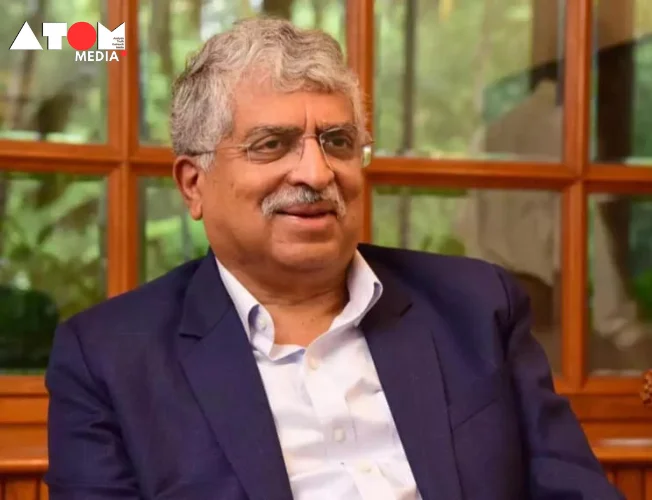India’s digital economy is fast changing, with startups becoming important actors in the sector. Recently, Nandan Nilekani, non-executive chairman and co-founder of Infosys, emphasised the enormous potential of companies founded on India’s digital public infrastructure (DPI). As per Nilekani’s report, the combined valuation of these businesses is more than $100 billion, highlighting the significant influence of DPI on the Indian economy.
The Foundation of UPI
The strategic goal for the development of the Unified Payments Interface (UPI) was highlighted by Nilekani. In addition to making digital payments easier, the objective was to provide a strong foundation that Indian business owners could use to innovate and create new products. Indeed, UPI has emerged as a key component of India’s digital financial ecosystem, facilitating smooth transactions and supporting the expansion of a multitude of fintech enterprises.
Introducing “Finternet”
During the 2024 Global Fintech Festival, Nilekani unveiled a ground-breaking idea he called the “Finternet.” He called this platform the “future of finance,” with an emphasis on user-centricity and unity. The goal is to build a universal infrastructure that will enable the hosting and tokenisation of any kind of asset, including real estate, bonds, financial investments, art, and NFTs. Nilekani emphasised the significance of having a framework in place that gives each person access to and control over these resources.
Addressing Current Financial System Limitations
Nilekani drew attention to the growing user demand for greater control and choice over their financial resources. He pointed out that the current financial institutions are finding it difficult to keep up with this demand, which calls for the creation of a new, more flexible system. Nilekani claims that the internet seeks to close this gap by offering a platform that can adapt to these changing needs of its users.
The Global Fintech Festival 2024
On the first day of the three-day Global Fintech Festival 2024 in Mumbai, Nilekani’s perspectives were presented. Prominent guests attending the ceremony include Ashwini Vaishnaw, the minister of IT, and Prime Minister Narendra Modi. The festival provides a forum for presenting fintech ideas and debating the direction of digital money in India.
UPI Circle and Bharat BillPay for Business, two important products from the National Payments Corporation of India (NPCI), were introduced by RBI Governor Shaktikanta Das on the first day of the event. Bharat BillPay for Business seeks to automate different invoice payment procedures for businesses, whereas UPI Circle is intended to enable consumers to assign payments to reliable secondary customers. These developments demonstrate how India’s digital payments industry is still developing.
The Rise of India’s Fintech Sector
The fintech industry in India has shown exceptional growth, with over $28 billion in capital raised by entrepreneurs in this field between 2014 and 2023. The industry currently has over 23 unicorns and 36 soonicorns, demonstrating its substantial economic influence. The nation’s expanding smartphone population, growing number of internet users, and accessibility to reasonably priced internet services are all factors contributing to the fintech ecosystem’s explosive expansion.
Role of Digital Public Infrastructure
The Open Network for Digital Commerce (ONDC), UPI, and the account aggregator architecture are examples of India’s digital public infrastructure, and they have all been instrumental in fostering a variety of fintech use cases. These platforms have facilitated the growth of numerous fintech behemoths in addition to streamlining financial transactions. These digital rails have been used by startups to create creative solutions that meet the various needs of both enterprises and consumers.
Future Prospects for Indian Fintech
The fintech industry in India appears to have a bright future. By 2030, the Indian fintech industry is expected to represent a $2.1 trillion market opportunity, per a forecast published by Inc42. This forecast highlights the enormous room for expansion and innovation in the industry, which is being fuelled by the growing uptake of digital financial services and the ongoing development of DPI.
Final Thoughts
The insights provided by Nandan Nilekani demonstrate how India’s digital public infrastructure has revolutionised the startup ecosystem. DPI will probably open the door for much more innovation and expansion in the fintech industry as it develops further. The emergence of ideas such as Finternet portends a more inclusive, unified, and user-centric financial system in the future, enabling greater control and engagement over financial assets. With entrepreneurs driving the trend, India is well-positioned to take the lead globally in digital finance as the fintech industry grows there.
Read more: Marketing News, Advertising News, PR and Finance News, Digital News





